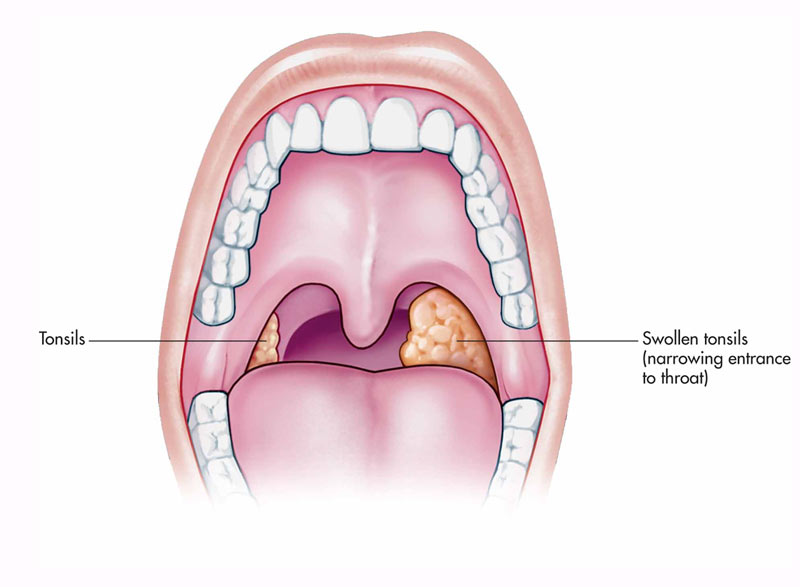
The first thing to do is get a diagnosis of tonsillitis. This disease is the most common ailment among Baby Boomers. Your tonsils may be red, swollen, and filled with pus. These are all signs of infection. However, if you notice the symptoms persisting after a few days, see a doctor. In most cases, over-the-counter treatments are enough to ease the symptoms.
A doctor may prescribe antibiotics for your tonsillitis if a test reveals that it is bacterial. These medicines are used when the bacterium responsible for the inflammation is group A streptococcus. If a patient has this bacterial infection, the doctor will prescribe an antibiotic. Penicillin is the most common antibiotic, and it is taken orally through the mouth for ten days. It is also necessary to consult your physician if you have an allergy to penicillin.
In some cases, a doctor may order a lab test to determine the cause of tonsillitis. If the doctor detects a bacterial infection, he or she may recommend antibiotics. These medicines fight bacteria, such as group A streptococcus. If antibiotics are prescribed, they are generally effective against group A streptococcus but are not effective against viral infections. If you’re concerned about your child’s health, you can try some home remedies. You should drink plenty of fluids and apply a mouthwash to the sore throat.
Once your tonsils have been removed, your doctor will prescribe antibiotics. These medicines are usually taken for about a week and will make you feel much better. In some cases, the treatment can involve surgery to remove the tonsils, but this is rare and requires a specialist. You will want to talk with your doctor about this option if you’re not feeling well. It’s important to follow all of your medication. This will help you to recover quickly.
Your doctor will first determine the cause of your tonsillitis. This may be a viral infection or bacterial. If the infection is bacterial, you can take antibiotics. Most doctors prescribe penicillin. If your symptoms are mild, you can take over-the-counter medications for about a week. But if the infection is chronic, your doctor will recommend surgery. This procedure involves removing part or both of the tonsils and will help you to breathe easier.

After the tonsils have been removed, you will need to take antibiotics. It’s vital to take the medication for the full course. If you miss a few days, your tonsillitis may worsen. Your doctor may want you to schedule a follow-up visit for a check-up. In addition to antibiotics, you’ll need to stay away from foods that cause bad breath and a cough. The infection can spread to other areas of your body.
In some cases, the most effective tonsillitis treatments do not involve antibiotics. In many cases, the symptoms of tonsillitis will resolve on its own. Other than taking your medications, you may need to rest and drink plenty of water. If your tonsils are not working properly, they may need to be removed. Thankfully, antibiotics are available to treat your condition without the need for surgery. These medicines will work for 2 to 3 days and make your tonsils feel better.
You will need to keep your children away from other people with tonsillitis until the infection clears up. Your child should not share their drinking or eating utensils with others. A child with tonsillitis should also not share food, napkins, or towels with a sick person. You can give your child a new toothbrush after tonsillitis treatment. If your doctor has no other options, you may need surgery.
You can also gargle with warm salt water. This remedy soothes swollen tonsils and kills bacteria in the throat. While this works for most people, it is not recommended for children under the age of two, as it may aggravate symptoms. If your child is suffering from tonsillitis, there are several home remedies for this condition. Cold liquids soothe and help a child with a sore throat.
Surgical treatment is the last option. If you have a persistent case of tonsillitis, you may want to consider a tonsillectomy. This is often recommended for patients with recurrent episodes. Also, if symptoms persist after a couple of weeks, you can consult your doctor or visit the site https://cth.co.th/. Your pediatrician will prescribe an antibiotic. You must complete the course of antibiotics for as long as possible, otherwise your child may develop severe rheumatic fever or severe inflammation of the kidneys.